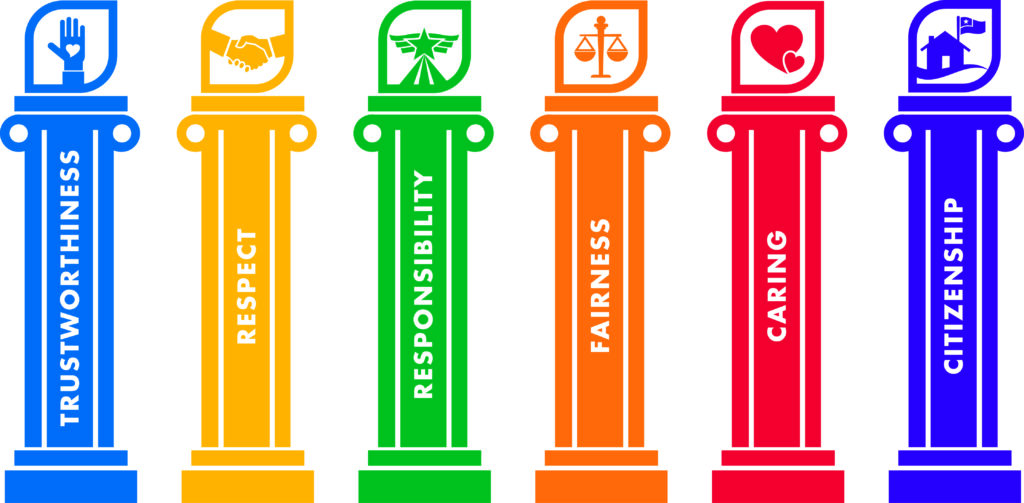
At CHARACTER COUNTS!, we often refer to the Six Pillars of Character as universal values. In other words, they are values that transcend race, ethnicity, gender, religion, and even time. Put another way, nearly everyone can agree that more trustworthiness, respect, responsibility, fairness, caring, and citizenship would be good and even necessary for our individual, community, and societal growth.
Though the Six Pillars are universal, they are not absolutes. Like anything else in society, what the Pillars look like, sound like, and feel like can change due to context or circumstance. What is considered perfectly respectful behavior at a football game would not be considered respectful in a boardroom, for example. How we define what each pillar looks like and sounds like in unique circumstances is particularly important when Pillars appear to be in conflict. One definition of citizenship may include following the rules, respecting the law, and so on. And yet, Rosa Parks is often highlighted as an example of fairness, for her protest on the bus in which she technically broke the law – an unjust, unfair, and racist law, but a law nonetheless. Does that mean she’s a bad citizen? Or, a student may argue that she was showing caring by letting her friend copy homework so her friend wouldn’t get in trouble, while a teacher might argue that the student was being irresponsible and untrustworthy by letting her friend cheat.
The tendency in these moments is to ask, “which Pillar is more important?” but that’s the wrong question. The right question is, “in this time, given these circumstances, what does it mean to put the Six Pillars into action?” When one asks this question, Rosa Park’s action is not only a demonstration of fighting for fairness, but citizenship, as she tries to make her community a better place for everyone, regardless of race.
Of course, some may view the constant need to negotiate what the Six Pillars look like in different circumstances as soft or unprincipled, but maybe it’s the opposite. The intentional, deliberate conversation about what the Six Pillars look like for us, in this situation, is exactly the kind of conversation, sometimes hard conversation, we must have if we’re going to work together successfully. Yes, the Pillars are universal, but what we want them to look like for our students, school, community, family, and society is ultimately up to us.
Learn more about character education.


